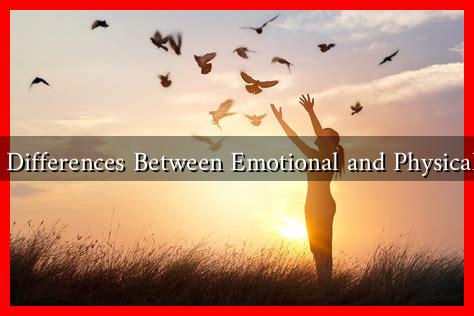-
Table of Contents
What Are the Differences Between Emotional and Physical Connection?
In the realm of human relationships, the terms “emotional connection” and “physical connection” are often used interchangeably, yet they represent distinct aspects of intimacy. Understanding the differences between these two types of connections can enhance our relationships, whether they are romantic, platonic, or familial. This article delves into the nuances of emotional and physical connections, exploring their definitions, characteristics, and the roles they play in our lives.
Defining Emotional Connection
An emotional connection refers to the bond that forms between individuals based on shared feelings, thoughts, and experiences. It is characterized by a deep understanding and empathy towards one another. Emotional connections are often built over time through communication, trust, and vulnerability.
- Trust: A strong emotional connection is rooted in trust, allowing individuals to share their innermost thoughts without fear of judgment.
- Empathy: The ability to understand and share the feelings of another person is crucial for emotional intimacy.
- Communication: Open and honest dialogue fosters emotional connections, enabling individuals to express their feelings and needs.
For example, consider a long-term friendship where both individuals have supported each other through various life challenges. This bond is strengthened by shared experiences and emotional support, illustrating the essence of an emotional connection.
Understanding Physical Connection
Physical connection, on the other hand, pertains to the tangible aspects of intimacy, often expressed through touch, proximity, and sexual interaction. It is a more immediate and visceral form of connection that can evoke strong feelings of attraction and desire.
- Touch: Physical connection is often initiated through touch, whether it be a hug, a kiss, or holding hands.
- Sexual Intimacy: In romantic relationships, sexual activity is a significant aspect of physical connection, contributing to feelings of closeness and bonding.
- Proximity: Being physically close to someone can enhance feelings of safety and comfort, reinforcing the physical bond.
For instance, a couple may experience a strong physical connection through passionate moments, but this does not necessarily imply a deep emotional bond. Physical attraction can exist independently of emotional intimacy.
Key Differences Between Emotional and Physical Connection
While emotional and physical connections can coexist and complement each other, they have distinct characteristics that set them apart:
- Nature of Connection: Emotional connections are based on feelings and mental engagement, while physical connections are rooted in bodily sensations and actions.
- Duration: Emotional connections often take time to develop and deepen, whereas physical connections can be immediate and intense but may not last long without emotional support.
- Expression: Emotional connections are expressed through words and actions that convey care and understanding, while physical connections are expressed through touch and physical presence.
The Importance of Balancing Both Connections
In healthy relationships, both emotional and physical connections play vital roles. A strong emotional connection can enhance physical intimacy, while a fulfilling physical relationship can foster emotional closeness. Research indicates that couples who maintain both types of connections report higher levels of satisfaction in their relationships. According to a study published in the Journal of Social and Personal Relationships, couples who engage in both emotional and physical intimacy experience greater relationship satisfaction and stability.
Conclusion
In summary, understanding the differences between emotional and physical connections is essential for nurturing healthy relationships. Emotional connections are built on trust, empathy, and communication, while physical connections are characterized by touch and proximity. Both types of connections are important, and their interplay can significantly impact relationship satisfaction. By recognizing and valuing both emotional and physical intimacy, individuals can foster deeper, more fulfilling connections with those they care about.
For further reading on the importance of emotional and physical connections in relationships, you can explore resources from the American Psychological Association.

